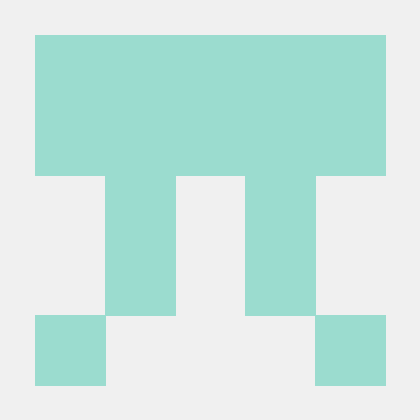Poetry support for Pants 2.6

Photo by Trust "Tru" Katsande / Unsplash
Pants 2.6 can now understand Poetry's pyproject.toml configuration for third-party dependency management, addressing one of our most requested features in the last year!
Pants Contributor Liam Wilson delves into this new feature as well as his experiences developing the macro as a Toolchain intern.
Pants 2.6 can now understand Poetry's pyproject.toml configuration for third-party dependency management, addressing one of our most requested features in the last year! Pants handles dependencies with more precision than Python projects using requirements.txt or Poetry. Pants Contributor Liam Wilson delves into this new feature as well as his experiences developing the macro as a Toolchain intern.
Pants handles dependencies with more precision than Python projects using requirements.txt or Poetry. Whereas normally you have a single virtual environment, Pants can understand precisely which 3rd-party dependendencies each file in your project uses, automatically, through dependency inference. When building your code — like running tests or packaging your code into wheel files — Pants only uses the third-party dependencies necessary for that particular file.
For example, given this file:
from django.http import HttpResponse
def index(request):
return HttpResponse("Hello, world. You're at the polls index.")
Pants can infer that you depend on Django:
$ ./pants dependencies --type=3rdparty project/app.py
Django==3.2.5
Among other benefits, this precise and automatic understanding of your dependencies gives you fine-grained caching. This means, for example, that if none of the dependencies for a particular test file have changed, the cached result can be safely used.
Normally, Pants learns about your third-party dependencies by parsing requirements.txt files. Now, Pants can also parse your pyproject.toml, including understanding Poetry's special operators like ^ and ~.
For example, given this pyproject.toml:
[tool.poetry]
name = "my_project"
version = "0.1.0"
[tool.poetry.dependencies]
python = "^3.8"
ansicolors = "1.5"
zipp = {git = "https://github.com/jaraco/zipp.git"}
requests = {version = "1.2.3", extras = ["security"], python = ">2.7"}
[tool.poetry.dev-dependencies]
complex_req = [{version = ">=1.9", python = "^2.7"},{version = "^2.0", python = "3.4 || 3.5"}
isort = ">=5.5.1,<5.6"
Pants will map to these 3rd-party dependencies:
ansicolors
zipp@git+https://github.com/jaraco/zipp.git
requests[security] == 1.2.3; python_version >= 2.7
complex_req>=1.9; python_version >= "2.7" and python_version < "3.0"
complex_req<3.0.0,>=2.0; python_version == "3.4" or python_version == "3.5"
This teaches Pants about the universe of all the third-party dependencies your project uses. Pants will then use dependency inference to determine exactly which subset of your dependencies are used by each file. This allows a single repository (i.e. a monorepo) to safely package multiple wheels/binaries for their project using a single pyproject.toml, as opposed to having a unique requirements list for every package in their repo: Pants will use the proper subset of dependencies for each package, automatically.
The new Poetry support makes it even easier to incrementally adopt Pants for Poetry users. Adopting Pants now no longer requires rewriting these requirements to a requirements.txt format and allows for consuming project.toml as-is. You can also keep using Poetry to update your 3rd-party dependencies (e.g. poetry add).
You can also teach Pants about your poetry.lock by running poetry export and pointing Pants to the generated file, ensuring that Pants uses the same pinned dependencies. (Note: Pants 2.7 will be getting more robust lockfile support).
See the docs for how to get set up with Poetry.
My experience as an intern
As an intern developing a feature for Pants, I was surprised at how straightforward it was to introduce a Pants macro.
Adding this functionality also highlighted how test-driven development can be extremely helpful, especially in instances where edge cases are very common. Having a firm idea about what cases need to be addressed and in what ways before development was something I already recognized, but I underestimated the value in having a concrete way to evaluate these cases prior to writing implementation details.
With this particular project, a handful of bugs slipped through as I wrote tests in batches. Consider parsing for a requirement in the dictionary form: within that, there are several sub-cases, like handling a git requirement, or handling a version. Each of those consists of a new set of edge cases, and I initially focused first on the finest grain of edge case. In doing this, I let a handful of broader-scale edge cases slip through, and had to patch several bugs as a result.
In retrospect, the better strategy would have been to work top-down, organizing each broad component, then after exhaustively addressing those cases, flesh out the stage below. In other words, considering the "feature" space as a m-ary tree, a breadth-first traversal makes more sense than a depth-first traversal when implementing a feature ridden with edge cases.
Lastly, I realized that having readable code is important not just for the feature itself, but also for test cases: deduplicating test cases (like using helper functions) can help highlight precisely what each test case addresses, which in turn can highlight gaps in coverage.
Conclusion
I learned a great deal while implementing Poetry, and am very satisfied with my work. I hope you find the added feature helpful when adopting Pants.
Try out Pants today with your Poetry project, and let us know what you think in the Pants Slack !
NB: The Poetry integration goal requires Pants 2.6+. The latest release is 2.6.0rc4, with a stable release coming this week!
